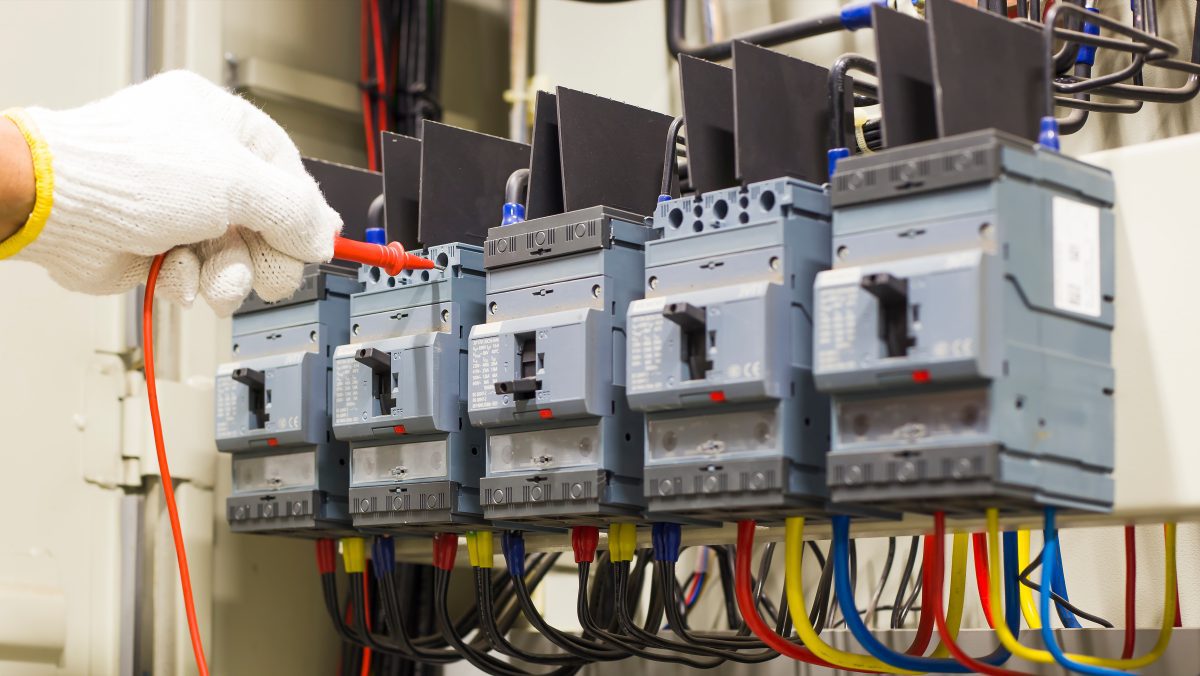How Can Understanding Commercial Electrical Code Requirements Make a Safer Building?
Navigating the intricate maze of commercial electrical code requirements can often feel like deciphering a foreign language. These codes, the lifeblood of safe and efficient commercial buildings, play an indispensable role in maintaining the integrity of electrical systems. But what do they entail? And how do they shape your workplace’s energy efficiency, security, and safety?
Comprehending these codes is vital for legal compliance and establishing a secure and efficient workplace. This post aims to dispel common misconceptions, highlight key requirements, and provide actionable insights into navigating the complex commercial electrical code requirements landscape.
What Exactly Are Commercial Electrical Codes?
Commercial electrical codes are sets of regulations designed by experts to guide installing, maintaining, and inspecting of electrical systems in commercial buildings. These codes, often guided by the National Electrical Code (NEC), include specifications for everything from outlet spacing to branch circuit design.
Why Should Businesses Care About Electrical Code Compliance?
The importance of electrical code compliance for businesses cannot be overstated. Non-compliance with electrical codes can lead to severe consequences, including hefty fines and the potential shutdown of operations. But the implications extend beyond legal ramifications.
Safety is a paramount concern in any commercial setting. Failure to adhere to electrical codes can result in dangerous hazards such as electrical shocks, fires, or other accidents. Faulty wiring, improper installation of electrical equipment, and disregard for safety regulations can jeopardize the well-being of employees, customers, and the broader public.
It’s also important to note a well-maintained and code-compliant electrical system contributes significantly to energy efficiency. This reduces costs and promotes sustainability, aligning with increasingly prevalent eco-friendly business practices. Regular inspections by qualified commercial electricians ensure that businesses remain compliant with codes and maintain safe, efficient electrical systems.
What Are the Key Electrical Code Requirements for Commercial Buildings?
Electrical code requirements for commercial buildings are extensive and vary based on factors like building size, functionality, and usage. However, certain universal requirements set by the National Electrical Code (NEC) apply across the board. One such requirement is installing Ground Fault Circuit Interrupter (GFCI) protection in wet locations. This crucial safety feature helps prevent electrical shock hazards when electrical equipment comes into contact with water.
Safe outlet spacing is another critical requirement. The NEC stipulates that outlets must be installed such that no point along the floor line in any wall space is more than six feet from an outlet. This rule helps reduce the reliance on extension cords, which can pose a fire risk if misused.
Specific rules also govern the installation and maintenance of circuit breakers, which serve as safety devices designed to stop the flow of electricity in the event of an overload or other electrical fault. Businesses often rely on professional electricians to navigate the intricate landscape of commercial electrical code requirements. These experts are well-versed in the latest codes, ensuring that all installations comply with the most recent safety standards.
How Often Do Electrical Code Requirements Change?
Electrical code requirements are not static. They evolve with technological advancements, changes in building designs, and new insights into electrical safety. The National Electrical Code (NEC), a standard for the safe installation of electrical wiring and equipment, is updated every three years. Staying updated with these changes is crucial for continued compliance and safety as these updates take into account advancements in technology, changes in building designs, and new insights into electrical safety.
These regular revisions ensure that the codes remain relevant and effective in promoting electrical safety in commercial buildings. They incorporate new technologies and safety measures, reflecting the latest best practices in the industry. For example, significant changes were made in the 2023 NEC, including requirements for GFCI protection for all kitchen receptacles.
Staying updated with these changes is crucial for businesses. It ensures continued compliance, mitigating legal risks, and enhancing safety. It also allows companies to incorporate more efficient and innovative electrical systems as they become available.
What Happens During an Electrical Code Inspection?
An electrical code inspection is a rigorous process conducted by certified electricians or inspectors. The goal is to ensure that a commercial building’s electrical systems, appliances, and fixtures comply with the latest electrical standards outlined in the NEC.
During an inspection, the inspectors carefully examine all aspects of the electrical system. They check the wiring, outlets, switches, circuit breakers, and other electrical components for proper installation and safe operation. They also review the building’s electrical layout, ensuring it meets code requirements for outlet spacing and circuit design.
Inspectors provide detailed reports if any violations are identified during the inspection. They also offer recommendations for corrective action to bring the electrical system back into compliance. In some cases, the inspectors might perform the necessary updates themselves, ensuring that the electrical system meets and exceeds the latest electrical standards.
How Can I Navigate the Complex Landscape of Commercial Electrical Code Compliance to Keep My Commercial Building Safe?
Navigating the intricate world of commercial electrical code compliance can be daunting. It requires a thorough understanding of the codes, continuous learning about updates, and regular inspections by qualified professionals. After all, understanding and adhering to commercial electrical code requirements is not just about avoiding penalties; it’s about fostering a safer, more efficient work environment. By staying informed and proactive, businesses can mitigate risks, save on energy costs, and create a safer space for all occupants. When you’re ready to work with the professionals to ensure your building is up to code, get in touch with our team at RS Martin.


 24 Hour
24 Hour